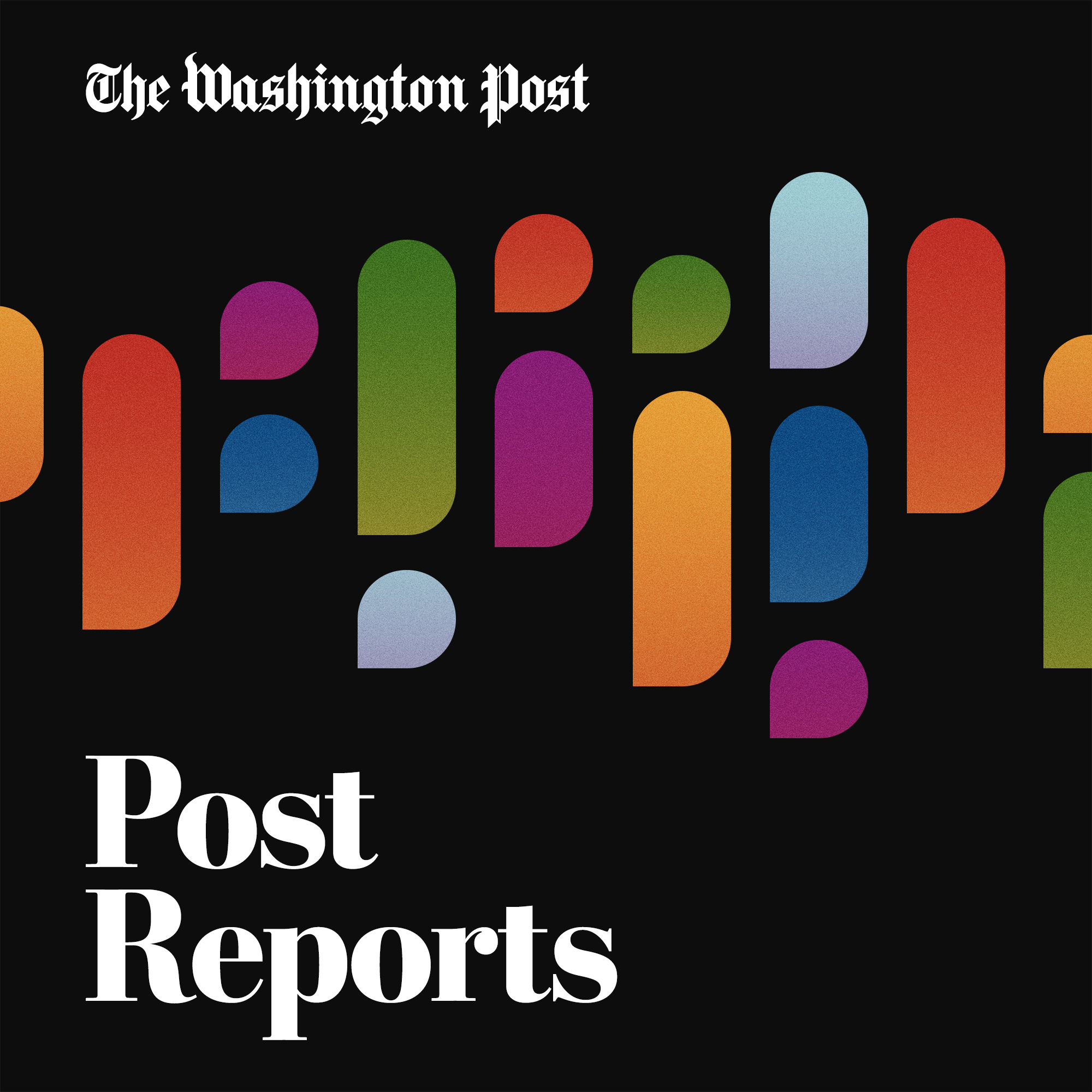

Post Reports
The Washington Post
Post Reports is the daily podcast from The Washington Post. Unparalleled reporting. Expert insight. Clear analysis. Everything you’ve come to expect from the newsroom of The Post, for your ears. Martine Powers and Elahe Izadi are your hosts, asking the questions you didn’t know you wanted answered. Published weekdays around 5 p.m. Eastern time.
Episodes
Mentioned books

Jan 31, 2026 • 37min
Jason Rezaian, Iran and the costs of press freedom
Jason Rezaian, Washington Post journalist turned press freedom director, recounts his wrongful detention in Iran. Yeganeh Rezaian, former Iranian journalist and advocate, reflects on resilience and risks to civil society. Brett McGurk, former U.S. envoy, describes the secret negotiations that secured Jason’s release. They discuss Iran’s protests, information blackouts, shrinking foreign reporting, and how to support Iranians going forward.

44 snips
Jan 30, 2026 • 36min
Is Minneapolis a turning point in Trump's presidency?
Naftali Bendavid, senior national politics reporter with sharp federal policy reporting, and Dan Merica, political analyst and co-anchor of The Early Brief, unpack the fallout from the Minnesota killings. They discuss GOP unrest over aggressive immigration enforcement, how viral footage shapes public opinion, risks of political violence, and Democratic leverage on Homeland Security funding.

23 snips
Jan 29, 2026 • 28min
The quest to ‘destructively scan’ all the world’s books
Will Oremus, technology reporter who covers AI and tech policy, walks through Anthropic’s Project Panama and its plan to scan masses of books. He explains how the project was uncovered and the tactics used to acquire books. He outlines legal fights over copyright and the broader scramble by AI companies to assemble training data.

14 snips
Jan 28, 2026 • 21min
Why smaller houses can make us happier
Michael Korn, a Washington Post climate coach and reporter who explores housing, lifestyle and climate, discusses why bigger homes do not always boost satisfaction. He covers research on size versus happiness, tradeoffs like cost and commute, household crowding thresholds, stories of downsizing, climate benefits of smaller homes, and what to prioritize when choosing where to live.

18 snips
Jan 27, 2026 • 25min
How Kristi Noem transformed immigration enforcement
Marianne Levine, an immigration reporter for The Washington Post, explains how Kristi Noem reshaped DHS into an aggressive immigration enforcer. Levine traces the shift from counterterrorism to widespread deportations and interior operations. She outlines reassignments of personnel, use-of-force concerns, congressional pushback, and what leadership changes could mean for future oversight.

14 snips
Jan 26, 2026 • 32min
After Alex Pretti's killing, a battle of narratives
Kim Bellware, a national reporter covering law enforcement and immigration, unpacks the killing of ICU nurse Alex Pretti. She examines bystander video, the sequence showing an agent removing Pretti’s handgun before a shot, and how federal statements framed the incident. The segment also explores disputes over investigations, local anger in Minneapolis, and the political battle over firearms and enforcement.

9 snips
Jan 24, 2026 • 18min
Why going outside is good for you, even when it's freezing
Today on the show, we explore the science behind why going outside is so good for us, even when it’s freezing.If you’re interested in learning more about nature therapy, check out the Center for Nature Informed Therapy.A psychologist says this exercise can make you more hopeful in 14 days: the Noticing Nature Intervention is straightforward, but its results might surprise you.If you want more Optimistic stories in your inbox, subscribe to our newsletter. And if you’d like to hear more hopeful stories on the weekend on “Post Reports,” please send us an email: podcasts@washpost.com. Today’s show was produced by Maggie Penman with help from Rennie Svirnovskiy who also mixed the show. It was edited by Allison Klein and Ariel Plotnick. Thank you to Sean Carter. Subscribe to The Washington Post here.

7 snips
Jan 23, 2026 • 41min
Trump’s Greenland ‘deal,’ and Democrats’ midterm math
Dan Merica, national political correspondent who breaks down elections and strategy, and Cleve Wootson, White House reporter with on-the-ground White House coverage. They dissect Trump’s marathon White House briefing and his unclear Greenland claim. They compare his press vs rally tactics, Davos pushback from world leaders, and why Democrats see a narrow path to Senate gains in 2026.

16 snips
Jan 22, 2026 • 26min
The Iranian director who risked his freedom to make his Oscar-nominated film
In this engaging conversation, Jafar Panahi, an Iranian filmmaker acclaimed for his socially engaged films, shares his bold experiences of navigating censorship and imprisonment. He discusses shooting his Oscar-nominated film ‘It Was Just an Accident’ in secret and the creative methods used to evade government restrictions. Panahi reflects on the impact of his lived experiences on his storytelling, the struggles of Iranian filmmakers, and the importance of portraying complex characters, particularly women, in today's sociopolitical landscape.

7 snips
Jan 21, 2026 • 20min
A mysterious death inside ICE's largest detention center
Douglas MacMillan, an investigative reporter for The Washington Post, delves into the mysterious death of Geraldo Lunas Campos while in ICE custody. He uncovers chilling accounts from detainees, revealing allegations of fatal restraint by guards. MacMillan shares the unsettling reaction of Lunas Campos's family and the preliminary findings from the medical examiner hinting at possible homicide. The topic broadens to highlight the troubling rise in deaths in ICE facilities, as the family seeks justice and accountability.


